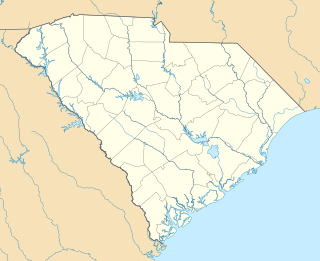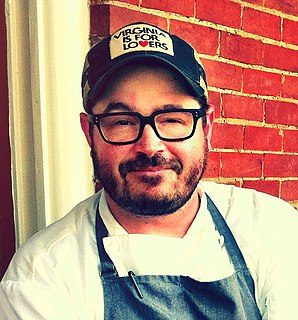
Marsh Hen Mill is a company on Edisto Island, in the US state of South Carolina, best known for its traditionally manufactured heirloom grits.

Marsh Hen Mill is a company on Edisto Island, in the US state of South Carolina, best known for its traditionally manufactured heirloom grits.
The company is owned by Betsy and Greg Johnsman, who in 2003 took over Betsy's family's farm on Edisto Island, a farm they had owned for three generations, and began growing and selling tomatoes and other fruits and vegetables. In 2007, they bought a 1945 gristmill, which had been sitting idle in a barn since the 1960s and which Greg brought back to working condition. [1] They kept the farm's old name "Geechie Boy", which was the nickname of a white farmer on the island, Raymond Tumbleston. [2] That name, however, caused some backlash and accusations of cultural appropriation, particularly after the George Floyd protests in 2020: in the South Carolina Lowcountry, "Geechee" is another name for the Gullah people, who are "descended from enslaved Africans who settled in tight-knit communities along the coast of the Carolinas and into Florida." [3] By September 2020, "after many days of prayer and countless bowls of grits", [4] the owners rebranded as "Marsh Hen Mill", named for the Salt water marsh hen which inhabits the Southern US coast. [5]
Marsh Hen Mill sells grits milled from heirloom grains [2] (including a pink variety called "Unicorn" made from red corn [6] ) to restaurants in Charleston [1] and Atlanta, [7] and ships across the country. [1] [8] Their products are used by many notable chefs, [1] including those working in traditional soul food cuisine. [9]
The company sells Carolina Gold, [10] a Lowcountry variety of African rice; at the time of the American Civil War it made up 3.5 million of the 5 million bushels of rice produced in the US, but had not been commercially grown since 1927 until its revival in South Carolina in the 1980s. [11] They also sell heirloom vegetables including cauliflower and sweet onions, besides other locally made products. [12]

Grits is a porridge made from boiled cornmeal. Hominy grits is a type of grits made from hominy – corn that has been treated with an alkali in a process called nixtamalization, with the pericarp removed. Grits is often served with other flavorings as a breakfast dish. Grits can be either savory or sweet, with savory seasonings being more common. The dish originated in the Southern United States but is now available nationwide. Grits is often part of a dinner entrée shrimp and grits, served primarily in the South.

Soul food is an ethnic cuisine traditionally prepared and eaten by African Americans, originating in the Southern United States. The cuisine originated with the foods that were given to enslaved black people by their white owners on Southern plantations during the Antebellum period; however, it was strongly influenced by the traditional practices of West Africans and Native Americans from its inception. Due to the historical presence of African Americans in the region, soul food is closely associated with the cuisine of the American South although today it has become an easily identifiable and celebrated aspect of mainstream American food culture.

The cuisine of the traditionally-defined Southern United States encompasses diverse food traditions of several regions, including Tidewater, Appalachian, Lowcountry, Cajun, Creole, and Floribbean cuisine. In recent history, elements of Southern cuisine have spread to other parts the United States, influencing other types of American cuisine.

Colleton County is in the Lowcountry region of the U.S. state of South Carolina. As of the 2010 census, the county's population was 38,892. Its county seat is Walterboro. The county is named after Sir John Colleton, 1st Baronet, one of the eight Lords Proprietor of the Province of Carolina. After two previous incarnations, the current Colleton County was created in 1800.

Edisto Island is one of South Carolina's Sea Islands, the larger part of which lies in Charleston County, with its southern tip in Colleton County. The town of Edisto Beach is in Colleton County, while the Charleston County part of the island is unincorporated.

Louisiana Creole cuisine is a style of cooking originating in Louisiana, United States, which blends West African, French, Spanish, and Amerindian influences, as well as influences from the general cuisine of the Southern United States.

Lowcountry cuisine is the cooking traditionally associated with the South Carolina Lowcountry and the Georgia coast. While it shares features with Southern cooking, its geography, economics, demographics, and culture pushed its culinary identity in a different direction from regions above the Fall Line.

Area codes 843 and 854 serve the eastern third of South Carolina. They cover the Grand Strand, the Lowcountry, the Pee Dee, and the Sandhills. Major cities in the region include Myrtle Beach, Charleston, Beaufort, Hilton Head Island and Florence. 843 is the main area code, while 854 is an overlay that was implemented in 2015.

Ashley River Historic District is a historic district located in the South Carolina Lowcountry near Charleston, South Carolina, United States. The Historic District includes land from five municipalities, almost equally split between Charleston and Dorchester counties. The district includes dry land, swamps, and marshes of the Rantowles Creek and Stono Swamp watershed.

The economy of South Carolina was ranked the 25th largest in the United States based on gross domestic product in 2020. Tourism, centered around Myrtle Beach, Charleston, and Hilton Head Island, is the state's largest industry. The state's other major economic sector is advanced manufacturing located primarily in the Upstate and the Lowcountry.
Chicken bog is a pilaf dish made of rice and chicken. It can include onion, spices, and sometimes sausage. A whole chicken is boiled until tender, then the rice is added and cooked until it absorbs all the liquid. Cooks often pick the bones and other inedible parts out of the pot and discard them before adding the rice to the meat and other ingredients. It is called Chicken "bog" because the chicken gets bogged down in the rice.

The Ashepoo, Combahee and Edisto Basin is one of the largest undeveloped estuaries along the Atlantic Coast of the United States. Located primarily in Colleton, Charleston, and Beaufort counties in South Carolina, the Ashepoo, Combahee and South Edisto rivers combine into the larger St. Helena Sound and drain a significant portion of the Lowcountry region. The 350,000 acres (1,400 km2) area is known for its natural environment and the preservation of its marshes, wetlands, hardwood forests, and riverine systems and the fauna that occupy the area.

John Martin Taylor, also known as Hoppin' John, is an American food writer and culinary historian, known for his writing on the cooking of the American South, and, in particular, the foods of the lowcountry, the coastal plain of South Carolina and Georgia. He has played a role in reintroducing many traditional southern dishes, and has advocated the return to stone-ground, whole-grain, heirloom grits and cornmeal production.

Brookland Plantation is a large plantation along Shingle Creek on Edisto Island, South Carolina.
Bahamian cuisine refers to the foods and beverages of The Bahamas. It includes seafood such as fish, shellfish, lobster, crab, and conch, as well as tropical fruits, rice, peas, pigeon peas, and pork. Popular seasonings commonly used in dishes include chilies, lime, tomatoes, onions, garlic, allspice, cinnamon, rum, and coconut. Rum-based beverages are popular on the islands. Since the Bahamas consist of a multitude of islands, notable culinary variations exist.

Susan M. Boyer is an American author. She lives in Greenville, in South Carolina, and has published seven mystery novels set in that state.

Sean Brock is an American chef specializing in Southern cuisine.

Carolina Gold rice is a variety of African rice first popularized in South Carolina, USA in the 1780s. It is named for the golden color of its unhulled grains.

The Gullah are African Americans who live in the Lowcountry region of the U.S. states of Georgia, Florida, South Carolina, and North Carolina, in both the coastal plain and the Sea Islands. They developed a creole language, also called Gullah, and a culture with some African influence.